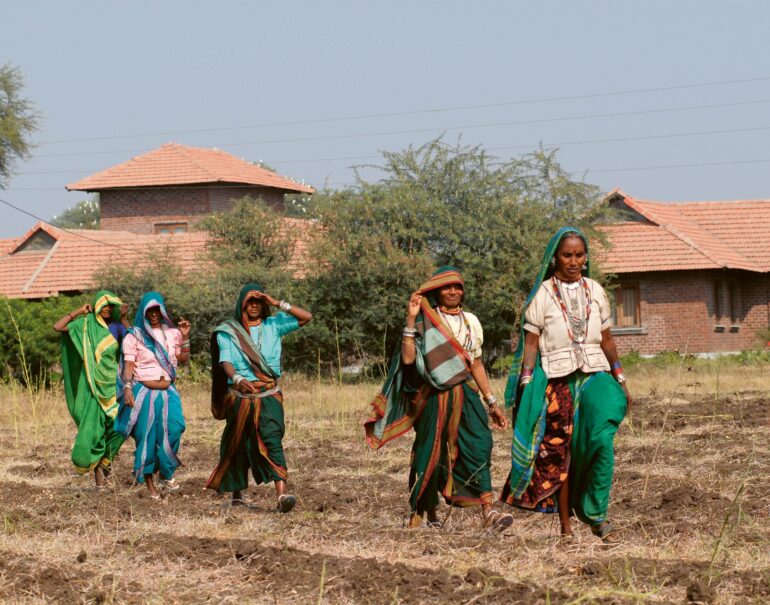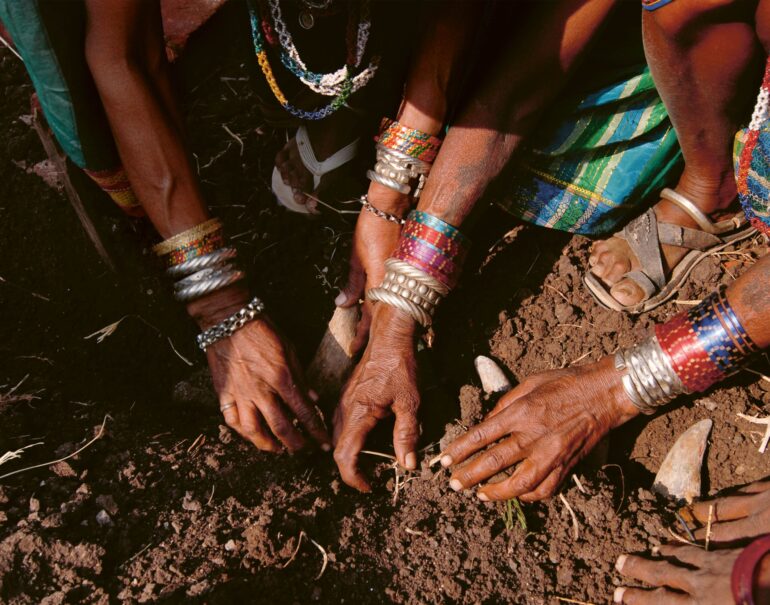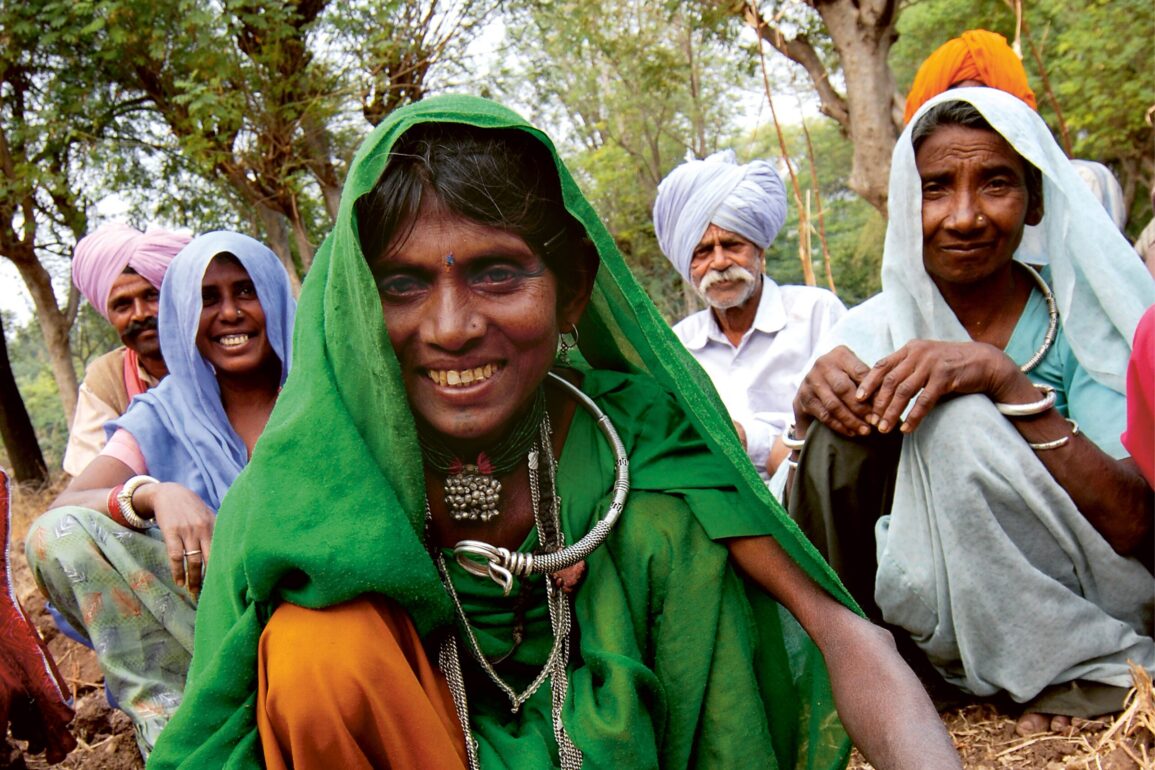A business for the commercial side, a charity for social commitment: the bioRe Foundation supports organic cotton farmers in India and Tanzania with a holistic approach.
‘It quickly became clear to us that what we needed was to train the women in organic farming,’ says Christa Suter, CEO of the bioRe Foundation. The foundation supports organic cotton farming. The first training sessions in India were attended by the registered farmers, i.e. the men. This turned out not to be particularly productive, however: ‘In Indian families, it is often the women who do the farming, as well as the housework,’ explains Suter. ‘That’s not to say that the men don’t work – they just have different responsibilities, like taking care of irrigation.’ To be effective, the foundation needed to engage with the women. Teaching mixed groups isn’t possible for cultural reasons. As a result, there are now over 80 women’s groups. In these groups, they learn how to use compounds containing garlic, onion or chilli to naturally deter pests. The training also teaches women the why, not just the how. This knowledge enables them to put the measures into practice effectively. ‘The idea is that the women pass on the knowledge they gain. We have trained 800 women to date – and we intend to increase that to 1,000 in 2021.’
More than mere resource extraction

Patrick Hohmann laid the foundations for bioRe in India 30 years ago. In 1991, the charity’s founder and current honorary president of the board of trustees launched an organic cotton farming project. In 1994, the project was founded in Tanzania. From the very start, the projects were based on the principle of combining economic growth with social factors. In the beginning, the social elements were integrated into the general business operations. However, this soon became too complicated. A foundation that was responsible for the social side of things seemed like the ideal solution. In 1997, Remei and Coop founded the bioRe Foundation. The advantage of this solution is that the social commitment is not dependent on the rest of the business. ‘All of the business activities relating to the product stay within the company Remei. The bioRe Foundation takes care of the social and community aspects,’ says Christa Suter. Despite this split, the foundation remains a key pillar of the organic cotton project.


Responding to people’s needs
A holistic approach is an important factor in the foundation’s success. It exclusively supports projects that emerge from the community itself. ‘The foundation responds to people’s needs. It is ideas from the community that inspire the projects,’ explains Christa Suter. Seed research and schools are among the successful projects that have been launched in this way. Identifying the issues is at the heart of the foundation’s social engagement. ‘We didn’t want to just build 18 school buildings, we wanted to facilitate school education,’ states Suter. The idea came from one of the farmers. The children gathered in his home to start developing a school routine. The focus was on very basic things: explaining to the children what school was, making sure they turned up neat and clean and that they had their school things with them. This was the foundational work that first introduced the topic of education to the community. Today, the emphasis is on the quality of the school education. The foundation does not see itself in competition with the state, however. ‘We have previously closed schools when a government school has opened up nearby,’ states Suter. A total of 1,261 children currently attend the schools: 694 boys and 567 girls. ‘The mothers recognise it as an investment in the self-determined future of their daughters,’ asserts Xenia Ritter, head of communications at bioRe. The foundation has also helped to improve sanitary conditions for the women, which are often inadequate in rural regions of India. In some places, there are no toilets. Government projects with funded public toilets were unsuccessful. ‘The men told us they wanted toilets to make things safer for their wives,’ explains Suter. It was clear that these needed to be located right next to their homes. These made them a safe place and gave women a sense of privacy, especially when they were on their period. This solution also ensured that someone felt responsible for the toilet and kept it clean.


